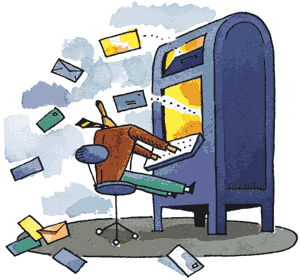|
Correspondence Law School Grads May
Practice in Wisconsin
A seemingly innocuous amendment to SCR 40.04(1) permits graduates of law
schools that lack ABA approval but that have some sort of state approval
to take the Wisconsin bar exam. Even correspondence law school grads may
qualify to practice in Wisconsin.
 by
Jeffrey S. Kinsler by
Jeffrey S. Kinsler
For decades, the only persons eligible to take the Wisconsin bar examination
were graduates of ABA-approved law schools.1
This all changed, however, on June 4, 1998, when the Wisconsin Supreme
Court promulgated a seemingly innocuous amendment to SCR 40.04(1). In
a one-page order, the supreme court amended SCR 40.04(1) to read:
"(1) An applicant who has been awarded a first professional degree in
law from one of the following [shall be eligible to take the bar examination]:
"(a) A law school that is fully or provisionally approved by the American
bar association at the time of the applicant's graduation.
"(b) A law school whose graduates are eligible to take the bar examination
of the state, territory or District of Columbia in which the law school
is located, provided the applicant has passed the bar examination of and
has been admitted to practice in that or another state." 2
This amendment arose out of a petition filed by
the Massachusetts School of Law (MSL), a non-ABA-approved law school whose
graduates are eligible to take the Massachusetts bar examination.3
MSL filed its petition pursuant to SCR 40.10, asking the Wisconsin Board
of Bar Examiners (BBE) to waive SCR 40.04(1) so that its graduates could
take the Wisconsin bar examination. At that time, SCR 40.04(1) stated
that only graduates of ABA-approved law schools could sit for the Wisconsin
bar examination. In support of its petition, MSL claimed that the quality
of its legal education is substantially equivalent to that of ABA-approved
law schools. The BBE denied MSL's request for a waiver on the ground that
only applicants, and not law schools, are eligible to seek waivers under
SCR 40.10.4
MSL then petitioned the Wisconsin Supreme Court for review. The BBE, MSL,
and the ABA submitted briefs and other materials to the supreme court,
which held a public hearing on Oct. 21, 1997.5
On June 4, 1998, the supreme court issued Order 97-09, permitting graduates
of law schools that lack ABA approval but that have some form of state
approval (for example, MSL) to take the Wisconsin bar examination. There
are 43 such schools in California alone, including 10 correspondence law
schools.6
The 1998 amendment to SCR 40.04(1) has opened up Wisconsin to a whole
new class of law school graduates. It is now possible for graduates of
correspondence law schools to sit for the Wisconsin bar examination and,
if successful, practice law in Wisconsin. Moreover, it appears that the
supreme court never contemplated the admission of correspondence school
graduates when it amended SCR 40.04(1). This article urges the supreme
court to reconsider its amendment to SCR 40.04(1) to determine whether
it is overly inclusive.
Correspondence Law Schools
Concord University School of Law in Los Angeles, Calif., is one of a growing
number of Internet and correspondence law schools in America.7
It has no campus, so its students never set foot in a classroom. Concord
offers a four-year, part-time program with a curriculum and materials
it claims are substantially similar to those of brick-and-mortar law schools.
Concord is approved by the Bureau of Private Postsecondary and Vocational
Education to grant law degrees, and is registered with the California
Committee of Bar Examiners, which entitles its students to sit for the
California bar examination.8
Graduates of Concord have taken and passed the California bar examination.9
California has designated Concord a "correspondence" school; correspondence
schools are not eligible for ABA approval.10
Concord's all-Internet instruction has been criticized by lawyers, judges,
and educators alike, including Justice Ruth Bader Ginsburg, who protested
that:
Page
2: Correspondence Law School 
|
